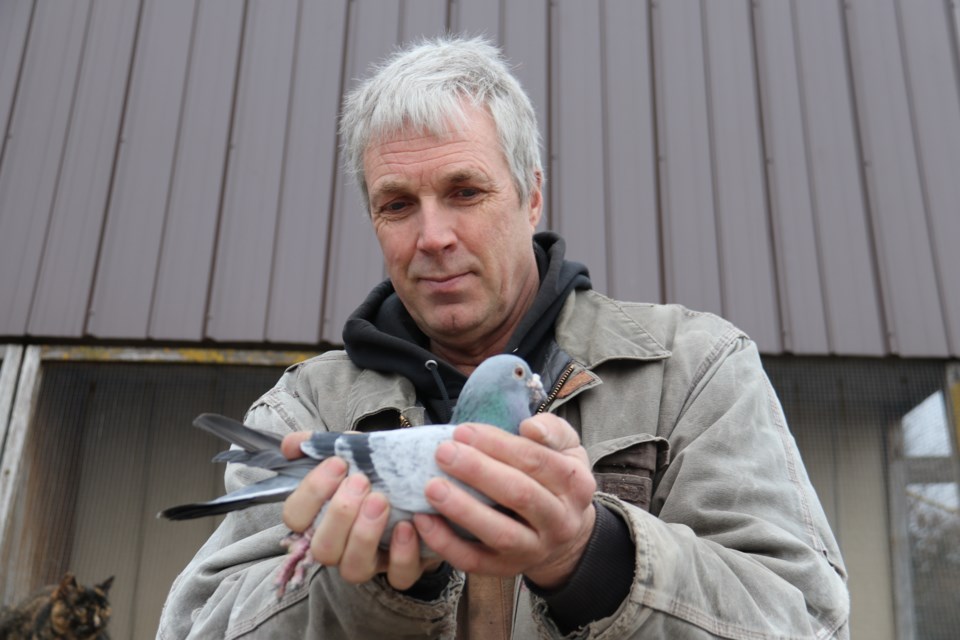When you pull up to Bill Weima’s house in Guelph/Eramosa Township, you’d never know there were more than 200 pigeons nestled in their lofts in the backyard.
You might have even seen some of them before, at the Special Olympics in Guelph or when the Guelph legion moved to its new location. But ultimately, these pigeons are trained and bred to race, something Weima has been doing in the township for the last 12 years.
But over the summer, Weima received a zoning infraction notice from the township stating that he must get rid of his pigeons by Dec. 31 or be fined.
“The Township of Guelph/Eramosa prohibits all livestock and livestock facilities on lots less than 2 acres in size,” an email sent to Weima from the township said. “Your lot is just under 1 acre in size and therefore does not conform with the MDS II standards for Livestock Facilities.”
If he doesn’t comply, he will face a fine of up to $25,000, and up to $10,000 every day thereafter.
Other competitors in the area have run into similar bylaw issues, he said, who were forced give up their pigeons.
“They were guys that just got started, they didn’t want to fight.”
But Weima does, saying he'd sooner move than get rid of his pigeons.
“My whole life is invested. It’s all I do … it’s who I am. I love these animals, I love these birds.”
Even with more than 200 birds, he can tell them all apart, and knows each pigeon’s name, where it was born, who its parents are, and what races it’s done well in.
And while he understands the intention of the bylaw – “they don’t want a guy with one acre to have 10 cows in the backyard” – his argument is that racing pigeons are not livestock, and therefore don’t fall under the zoning bylaw in the first place.
“I can see them having an issue if you have a little backyard and you've got a mess out here, there's nobody here,” he said of his property that sits beside five acres of crown land, and one neighbour who he said is fine with the pigeons.
Weima did have some chickens that were part of the infraction, which he cleared from his property because they are “absolutely livestock,” he said.
The Canadian Racing Pigeon Union, which has 800 members across the country, has tried to help the township create a pigeon bylaw in the past, but nothing came of it.
However, in light of the impending fines, Weima has been in touch with an attorney, and said he thinks he has a good case.
“I don't see how they possibly can think that they can succeed in this,” he said.
Weima is the president of the North Road Racing Pigeon Association, with 75 members, and is a member of two other organizations that have 150 members collectively, all within nearby cities and townships.
Although the sport is relatively small in Canada, it’s incredibly popular elsewhere. In Belgium, where the sport originated, he said there are national races with 30 to 40,000 birds released at once, while the largest race in Ontario would be with 2,000 birds.
“At one point in Belgium, there were more racing pigeons than people,” he said.
Pigeons have historical significance as well. Dec. 21 marked the 100th anniversary of the death of a pigeon who saved 180 soldiers, and more than 30 pigeons have received medals for their heroics during the war. The late Queen Elizabeth even maintained a flock of racing pigeons until her passing.
For Weima, though, it’s a stress reliever.
“It doesn’t matter how bad of a day you’ve had, you walk into the loft for half an hour and your stress is gone. It just washes away,” he said. “I’ve gone through a divorce, this kind of replaces something I’ve lost. I always thought it was something that couldn’t be taken away from me.”
